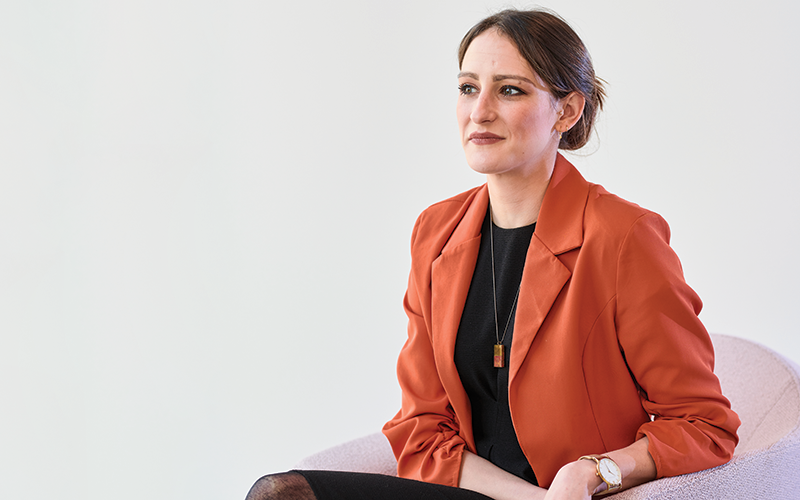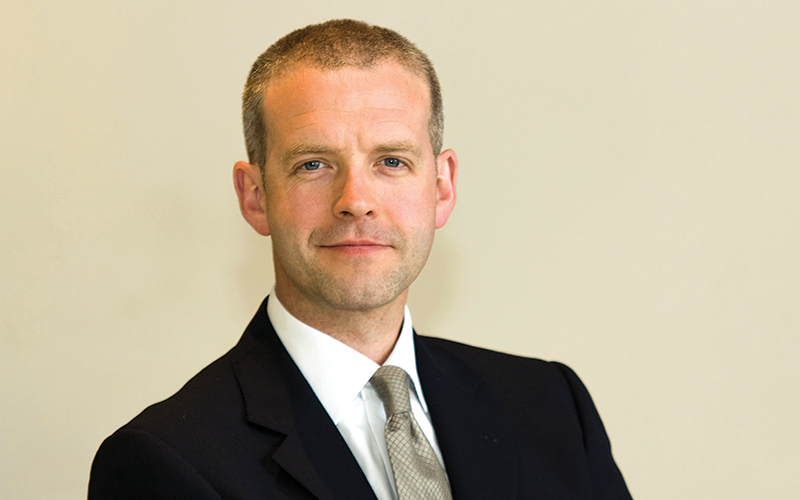Sporting hero on board

Perrett Laver’s Imogen Baird is leading the hunt for diverse leaders, changing the look of sports organisations in England.
In 2016, data gathered by Sport England revealed that men “overwhelmingly” dominated the boards of sport organisations.
“It presented a quite shocking picture,” recalls Phil Smith, director of partnerships at Sport England. “Overwhelmingly, sports boards were populated by men, by white men, by white middle-class men, by white middle-class men who were from relatively affluent backgrounds and men ‘of a certain age’ as well.
“Therefore, the sport industry was missing out on all of the wonderful, diverse experiences that the UK and England have to offer… These organisations, many of them national sports bodies, are supposed to be for and to represent England in its entirety. And boards just weren’t doing that.”
In that same year, the Code for Sports Governance set out the levels of transparency, diversity & inclusion, accountability and integrity that are required from those organisations who seek – and are in receipt of – UK Government and National Lottery funding from UK Sport and/or Sport England. The code provided a reason for change and “a mechanism to make it easy for them to change”, Smith says.
And change has been underway, supported by a partnership between Sport England and global headhunting firm Perrett Laver. Since that concerning data and the new code emerged seven years ago, the partnership has led to 53 highly skilled and diverse professionals taking on non-executive board roles with sporting organisations in England. And in the first quarter of 2023, those 53 belong to a network of 285 highly skilled and diverse professionals, run through the partnership, which is available to be tapped for future such positions.
“That’s 285 people with an amazing variety of skills, expertise and experience in their own chosen industry,” Smith says. “People that are working at a highly accomplished level in professional fields who have said they have the desire and the interest to get involved in a sports board.”
Imogen Baird leads the sports practice at Perrett Laver, whose sport clients have included the England and Wales Cricket Board (ECB), the Football Association, the Invictus Games, and the Yorkshire Cricket Club, amongst many other national governing bodies, teams, clubs, foundations and charities in the sports space, along with events and rightsholder spaces “across the sports landscape”.
And Baird, a former competing athlete herself, is among the heroes of this work with Sport England, as one of the architects of the project to diversify sport’s board membership.

Sport England put out a call, recognising there was an issue”
Of the relationship with Sport England and UK Sport, which is continuing this year, Baird says: “We’re really passionate about continuing the journey of the professionalisation of sports leadership. We were delighted to secure the work.”
Explaining how it began, Baird says, Sport England “put out a call, recognising there was an issue ... The boards at the non-executive level were really a quite starkly poor representation of all the protected characteristics, so a real lack of diversity. They [Sport England] wanted to combat that”.
The initial concept was to create a pool – now known as a network – of appropriate candidates who could be put forward when board vacancies arose at a sports organisation. Such candidates would likely not come from within the sports industry but be “interested in non-executive leadership roles in the space, who have the right credibility, the right skills, who come from a diverse background”, Baird says.
Having won the pitch, Perrett Laver reached out to potential candidates, as well as to training providers, using existing connections and making new ones, to begin establishing a solid platform for a network. Training providers helped to create and deliver learning modules to guide candidates through the requirements and demands of serving on boards, ensuring that the candidates fully understood the commitment they would be making. (Non-exec board roles typically are unpaid, with those filling the positions giving their time and expertise a fair few times per year.)
Next, “we quite quickly started introducing ourselves, approaching national governing bodies and saying, ‘We want to know when you’ve got a vacancy going’. And there were a great few ‘early adopters’ ”, Baird says.
Soon, sports organisations were knocking on Perrett Laver’s doors, seeking their assistance in finding the right candidates for their board vacancies. “We now give them [the organisation securing the board member] a bit of advisory support as well – what does the candidate pack look like? What does the sort of process they’re designing look like? Is it compelling? Is it inclusive? So, it’s quite a more holistic package of support now that we offer people,” Baird says.
In 2023, Baird says, the network members can look forward to include “events and other opportunities to network with each other and of course partners and decision makers across the sector, as well as more training workshops. Critically, exposure to non-executive roles across the sector will continue to be circulated with plenty of bespoke support available for applications”.
For those candidates themselves, the stand-out benefit is the chance to network with each other, along with the opportunities to meet different organisations and be considered for board positions. Sport England’s Smith says: “They meet both on screen and in person occasionally [with each other] because of course their experiences are vastly useful to each other. We’ve learned quite a lot from listening to all the candidates. We’ve learned a lot about their experience of being in other industries, the barriers, the rejections that they’ve had, their motivations.”
But key to the candidates’ successful induction is cultural assimilation into not only the organisation they are joining, but very likely into the sport industry itself. “If you’re coming into the sport industry from outside, you’re not going to get it on Day 1,” Smith says. “And equally, you’re not going to be able to give your best board performance on Day 1. Yes, you’re recruiting fantastic individuals, but you’ve got to give them the chance to succeed.”
He continues: “I’ve never worked in another industry, but it must be the same anywhere else. You have to understand the language and the norms, the do’s and don’ts, and learn the acronyms. This is a big deal, and it takes time. So we were acutely aware that bringing people in from outside the industry, as well as not being the historic demographic of people on the boards, is an extra layer of induction and learning that people need.”
Much is at stake, Smith emphasises. “I’ve seen the odd occasion where a brilliant individual has come in from another industry. And because there’s been an assumption in the recruiting body that this person is just going to arrive fully formed and brilliant… they’ve almost spat them out [a candidate].
“You can’t put the onus and all the expectation on the incoming board member to get up to speed – you’ve got to help them, and you’ve got to listen to their concerns.”

We’ve got more work to do on those with disabilities, and that is our next big focus”
Smith (pictured above) points out that becoming part of this talent network doesn’t necessarily lead to a role quickly or at all: “There have to be vacancies, and many of the boards in sport have their vacancies in rotation, so the vacancies only come around every so often. But we’ve now got to a good place where when a sports body board is looking for a new recruit, their first port of call is now that pool of 285 people, not just because they’ve got diverse people…but you’ve got high quality people.”
Organisations wanting to diversify their boards also have hurdles to overcome, many of them to do with timing. Asked what organisations typically have trouble getting to grips with in a headhunting situation, Baird says that “good recruitment does take time, and our really needing to interrogate the brief at the outset, not just ‘We need to fill this vacancy really quickly.’ There’s real pressure, I think, to move quickly and to make changes quickly”.
Smith says the greatest success in diversifying boards until now has been improving gender balance “which has been fantastic” from the under 20% levels in the initiative’s early days. “Our next big focus is on other protected characteristics...
“We’ve got more work to do on those with disabilities, and that is our next big focus. We need more people who have got lived experience of disabilities... In the recent census data for the population, those recording a disability is near 20%. Therefore, we’re a bit underrepresented.”
Smith acknowledges that “diversity in itself is not a solution for a poorly performing organisation”. Great skills are needed too, as is leadership.
“However skilled your individuals are, whatever background they’re from, you’ve got to get the best out of them, and that needs leadership.”
